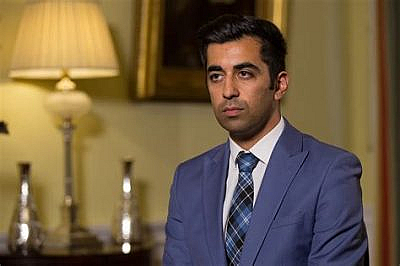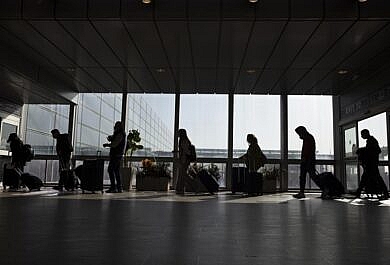The governing Scottish National Party elected Humza Yousaf as its next leader on Monday after a bitter leadership campaign that exposed the deep divisions within Scotland’s independence movement.
Summary
The governing Scottish National Party elected Humza Yousaf as its next leader on Monday after a bitter leadership campaign that exposed the deep divisions within Scotland’s independence movement.
- Yousaf was elected by a narrow 52-48 margin over his top rival, 32-year-old Finance Minister Kate Forbes in the second round of voting after failing to win a majority. Yousaf led Forbes 48-41 in the first round, with also-ran Ash Regan falling far behind at 11 percent.
- About 50,000 of the SNP’s 72,000 members voted in the online election using the Single Transferable Vote method. Approximately 1/3 of party members did not vote, an unusually low turnout rate in a British leadership election – especially one to decide Scotland’s next leader.
- Scotland’s next leader will replace Nicola Sturgeon, the left-wing independence leader who tried to circumvent British democracy to force another independence vote after the 2014 referendum failed. Sturgeon unexpectedly resigned after pushing through a “gender reform bill” widely criticized as “woke” that would’ve made it much easier to change one’s legal gender.
- Yousaf will become the first Muslim to lead a nation of the United Kingdom – or any western European democracy – when he takes over as First Minister. The 37-year-old son of Pakistani and East African Indian immigrants will be confirmed as leader by the Scottish Parliament on Tuesday.
- Yousaf’s religion was not a major issue in the campaign, unlike rival Kate Forbes. Forbes, a devout Christian, faced numerous attacks over her socially conservative views and her personal opposition to gay marriage.
- The new SNP leader has been widely criticized for having “few accomplishments to show for his time in government” and having “failed upwards” with the support of the SNP party establishment. A Labour politician called him “the worst health secretary on record” who “now aspires to be the worst first minister on record.”
- As his leadership rival Kate Forbes said in a TV debate: “You were transport minister and the trains were never on time, when you were justice secretary the police were stretched to breaking point, and now as health minister we’ve got record high waiting times.”
- Yousaf’s first task will be to unite the SNP after a nasty leadership race hallmarked by personal attacks. Sturgeon’s independence strategy and “gender reform bill” have further divided the party. As one former SNP official told Politico, “Nobody — including his backers — looks at Humza and says ‘there’s our leader for the next 10 years’ or even that he’ll win independence.”
![]()
- The New York Times wrote Yousaf faces “several daunting obstacles” as Scotland’s next leader. If Yousaf wants to make independence a reality, he will need to try and build support for independence to where the British government can’t ignore it. However, the divisions in his party have opened the door for Labour, which once dominated Scotland, to mount a comeback.
- The Guardian noted more than 50% of first preference votes went to candidates – Forbes and Regan – who campaigned on a “reset” for the SNP and wanted to ditch the SNP’s coalition with the far-left Scottish Greens. The deep divisions call into question the sustainability of the SNP’s avowedly progressive agenda.
- CNN observed recent opinion polls have found support for Scottish independence on a downward swing. “Scotland voted against independence by 55% to 45% in 2014…However, an opinion poll this month showed the backing for independence dropped to 39%, or 46% when “don’t knows” are excluded. That compares with a record 58% in 2020.”
![]()
- GB News covered the response from Scottish Conservative Leader Douglas Ross to Yousaf’s election. “As the main opposition party, we will hold Humza Yousaf to account when he lets the Scottish people down. Unfortunately, we have serious concerns about his ability,” said Ross. “For the good of Scotland, we hope he does not lurch from failure to failure as he did when he was Nicola Sturgeon’s Health Secretary, Justice Secretary and Transport Minister.”
- The Telegraph called Yousaf’s win a “victory for Unionists,” predicting Yousaf’s poor record in government and the deep divisions within the SNP would put independence on the back burner in the near future.
- The Spectator compiled “ten yardsticks” to evaluate Yousaf. Their measures include support for independence, whether Scotland’s educational attainment gap closes, reducing overdose deaths, and fixing a Scottish Health Service left in crisis after Yousaf’s “challenging” tenure.
© Dominic Moore, 2023






